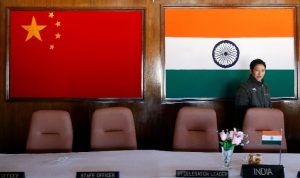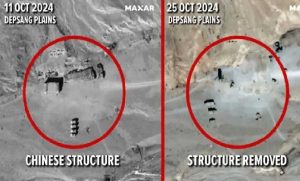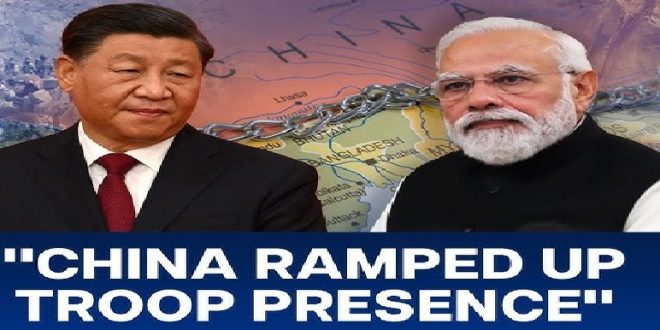01-11-2024
Bureau Report + Agencies
NEW DELHI: India and China have completed pulling back their troops from two face-off points on their disputed Himalayan frontier as planned, an Indian defence official said on Wednesday.
The nuclear-armed neighbors reached a deal last week on patrolling the frontier in the Indian territory of Ladakh to end a four-year military stand-off, paving the way for improved bilateral political and business ties.
 The disengagement that began last week has been completed and verification of the process is in progress, the Indian official told Reuters.
The disengagement that began last week has been completed and verification of the process is in progress, the Indian official told Reuters.
Soldiers will exchange sweets in a goodwill gesture on Thursday and will begin their patrols of the frontier soon after commanders on the ground finalize the modalities, he added.
There was no immediate comment from Beijing on the troops pull-back.
The mostly undemarcated border of about 4,000 km (2,500 miles) that runs along the Himalayas has been a source of tension between the world’s two most populous nations for decades and led to a brief but bloody war in 1962.
Four years ago, 20 Indian and four Chinese soldiers were killed during border clashes. The two sides then stopped patrolling several points on the border in Ladakh to avoid new confrontations, while moving tens of thousands of new troops and military equipment closer to the freezing mountainous region.
They later pulled back troops from five face-off points but the last such withdrawal took place over two years ago.
Days after the two countries reached their new border pact, Chinese President Xi Jinping and Indian Prime Minister Narendra Modi held their first formal talks in five years on the sidelines of a BRICS summit in Russia and agreed to boost communications and resolve conflicts to help improve relations.
The thaw is expected to boost economic ties that were hurt by the border tensions, although Indian officials said New Delhi would move cautiously given the trust deficit that has built up.
 Chinese President Xi Jinping and Indian Prime Minister Narendra Modi agreed three days ago to boost communication and cooperation between their countries and resolve conflicts to help improve ties that were damaged by a deadly military clash in 2020.
Chinese President Xi Jinping and Indian Prime Minister Narendra Modi agreed three days ago to boost communication and cooperation between their countries and resolve conflicts to help improve ties that were damaged by a deadly military clash in 2020.
The two leaders met on the sidelines of the BRICS summit in Russia for their first formal talks in five years, signaling that ties between the Asian giants have begun to recover from the diplomatic rift caused by the clash along their disputed Himalayan frontier.
India and China, two of the world’s biggest economies, have maintained strong trade ties despite the military and diplomatic tensions. The rapprochement is expected to boost Chinese investment in India.
India said the two leaders have directed their officials to take further steps to stabilise all aspects of bilateral ties.
The Xi-Modi meeting in the city of Kazan came two days after New Delhi said it had reached a deal with Beijing to resolve the four-year military stand-off in the Himalayan region of Ladakh, although neither side has shared details of the pact.
The two sides should strengthen communication and cooperation, resolve conflicts and differences, and realize each other’s development dreams, Chinese state broadcaster CCTV reported Xi as telling Modi.
Modi put forward ideas for improving and developing bilateral relations, to which Xi agreed in principle, CCTV added without elaborating.
 Pressmediaofindia
Pressmediaofindia




